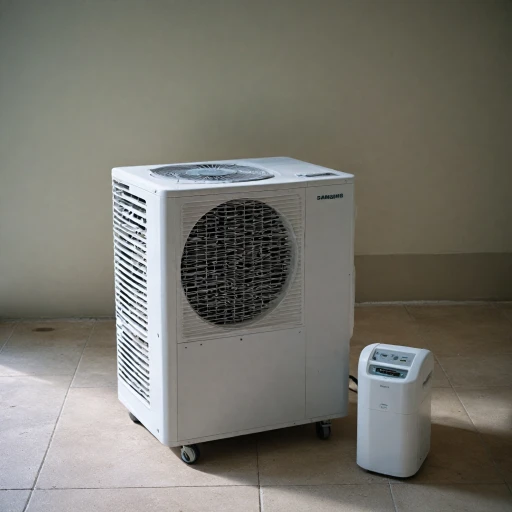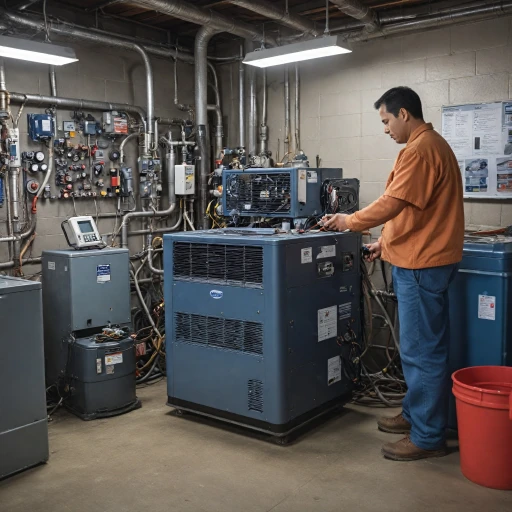
Understanding the Basics of Portable Air Conditioners
The Inner Workings of Portable Cooling Units
Portable air conditioners have become quite popular due to their ability to provide cooling relief in spaces without the need for complex installations. These units rely on a simple yet effective system designed to cool and dehumidify the air. Understanding how these appliances function can help troubleshoot issues like leaks and maintain their efficiency. The core components of a portable air conditioner include the evaporator, condenser, and a fan system. As the air conditioner draws in warm air, it passes it across the evaporator coils. Here, the refrigerant absorbs heat, cooling the air and simultaneously extracting moisture, which leads to condensation. The water resulting from condensation collects in a dedicated condensate tank or sometimes drains away through a built-in drainage system. In some models, a condensate pump helps manage water removal. Understanding the role of an AC condensate pump in portable air conditioners is crucial for users seeking to optimize the effectiveness of their unit's water drainage. Additionally, the system's filters play an essential role in maintaining air quality and ensuring the unit operates efficiently. Regularly cleaned or replaced air filters prevent dirt buildup, which could strain the system and potentially lead to water leaks. To avoid water leakage from your portable unit, it's important to maintain appropriate levels of refrigerant, as low refrigerant levels can alter the efficiency of the cooling process, potentially leading to increased condensation and water leaks. Regular maintenance of your portable air conditioner can prevent such problems before they start, thus extending the life of your unit and ensuring a comfortable environment.Common Causes of Water Leakage
Identifying the Underlying Causes of Leakage
Portable air conditioners are convenient, yet they can sometimes present issues like water leakage. This problem is often due to several common factors. Understanding these causes can help you diagnose and potentially prevent future leaks.- Improper Drainage System: One of the most common reasons is an improper drainage system. In many units, water that gathers in the condensate tank needs a clear path to drain. Any blockage in the drain hose or issues with the unit's internal condensate pump can lead to water leaking.
- High Humidity: Excess humidity in the air can overwhelm the unit's ability to dehumidify, causing the tank to fill quickly and overflow. This is especially true in regions where humidity levels fluctuate significantly.
- Dirty Air Filters: When air filters are clogged, the airflow decreases. This can cause the evaporator coil to freeze, leading to condensate leakage as the ice melts. Regularly cleaning these filters can mitigate this issue.
- Full Condensate Tank: Check if the tank is full. Many units have a tank full indicator light. Ensuring the tank is regularly emptied helps prevent overflow, maintaining the efficient operation of your portable acs.
- Low Refrigerant Levels: If the refrigerant levels are low, the unit's cooling efficiency decreases. This can cause various operational issues that may include water leaks.
Signs Your Portable Air Conditioner Needs Attention
Recognizing Warning Signs in Your Portable AC Unit
When it comes to ensuring your portable air conditioner operates smoothly, being alert to signs that indicate the unit needs attention is crucial. Here are some key warning signs that your portable AC might be due for a check-up:
- Excessive Water Leaking: It’s not unusual for condensate to form, but if you notice your portable air conditioner leaking water more than usual, it might indicate a blocked drain or hose.
- Frequent Tank Full Alerts: If the condensate tank fills up more quickly than expected, it could be a sign that the drain system isn’t functioning properly or needs to be cleaned.
- Sudden Decrease in Cooling Efficiency: When the cooling mechanism seems off or takes too long to cool the air, low refrigerant levels or dirty air filters might be the culprits.
- Visible Water Puddles: Water leaks around the base or surrounding area of the unit can suggest a problem with seals or connections within the air conditioning system.
- Unusual Noises: Bubbling or gurgling noises might not just be distracting; they can hint at an issue with the drainage system or air blockage.
Monitoring these signs can help preempt more severe issues and help maintain the longevity and effectiveness of your portable AC. Addressing these red flags promptly can prevent significant leaks and avoid extensive repairs. Taking the first step by regularly inspecting and cleaning components such as the air filters and the drain can often avert more serious problems down the line.
Preventive Measures to Avoid Water Leakage
Steps to Ensure Leak-Free Operation with Your Portable AC
- Maintain Balanced Humidity Levels: Ensure that the room’s humidity is balanced to prevent excessive water accumulation in the condensate tank. Utilize a hygrometer to monitor and control indoor moisture levels, which can reduce stress on the unit and prevent leaks.
- Routine Air Filter Checks: Dirty air filters can obstruct the airflow, causing the system to overwork and potentially leading to leaks. Regularly inspect and clean the air filters to enhance air passage and cooling efficiency.
- Clear Drainage Path: Follow each step to confirm that the drain hose and drainage system are free from any blockages. A clogged system can hinder proper water flow, leading to overflow and leaks.
- Monitor the Condensate Tank: Regularly check if the tank is full. Automatic shut-off systems prevent water spills, but it's crucial to manually empty or replace the tank to avoid water leaking.
- Regular System Inspections: Schedule checks of the unit’s components, including the pump, hose, and seals. Ensuring each part functions correctly helps prevent potential leaks caused by wear and tear.
- Keep Refrigerant Levels in Check: Low refrigerant or improperly filled systems can lead to ineffective cooling and increase the likelihood of leaks, so regular maintenance checks by certified HVAC technicians are recommended.
DIY Solutions for Minor Leaks
Simple Fixes for Your Portable AC
Addressing minor water leaks in your portable air conditioner can often be done with straightforward steps. Before starting, ensure the unit is turned off and unplugged for safety. Here's how you can remedy small leaks yourself:- Check and Empty the Condensate Tank: If your portable AC has a tank, it may simply be full. Empty it and see if this stops the leak. Regularly monitoring the tank level helps prevent future overflow.
- Inspect the Drain Hose for Blocks: A clogged or improperly placed drain hose can cause water to back up and leak. Ensure the hose is securely attached and check for any obstructions that might be preventing proper drainage.
- Clean the Air Filters: Dirty air filters can reduce efficiency by hindering air circulation, potentially leading to excess condensation. Clean or replace filters as needed to maintain optimal airflow and cooling.
- Examine the Drainage System: The system that channels condensation away may need a look. Remove any blockages you can see and ensure every part is correctly aligned and functioning.
- Assess Humidity and Cooling Levels: If you're dealing with high humidity, increase the cooling setting on your unit. This can reduce the level of condensation produced by the system.
When to Call a Professional
When Professional Intervention is Necessary
There are times when dealing with a portable air conditioner that's leaking water requires more than just DIY endeavors. Knowing when to enlist the help of a professional can save your unit from further damage and ensure a quick resolution to the problem.
- Persistent Water Leakage: If you've noticed recurring water leaks from the condensate tank despite taking preventive measures and applying DIY solutions, it might indicate a serious underlying issue.
- Pooling Water Around the Unit: A puddle forming consistently around your portable AC unit, even when it's not in use, signals a possible malfunction in the drainage system or a defective pump.
- Unit Leaks After Trying DIY Fixes: Once you've attempted the minor repairs as recommended, yet the air conditioner continues to leak, this is a clear indication that professional assessment is needed.
- Condensate Build-Up: Excessive humidity can overburden the cooling system, causing continued condensate build-up. Certified HVAC technicians can inspect the unit and offer solutions tailored to maintain proper humidity levels.
- Suspected Low Refrigerant Levels: If the unit isn't cooling efficiently and water is leaking, the issue may be due to low refrigerant. Specialists have the equipment to evaluate and adjust refrigerant levels as needed.
Professional intervention ensures that your portable air conditioner operates efficiently, safely, and effectively, reducing long-term maintenance costs. Always opt for certified technicians to avoid further damage to your system.













